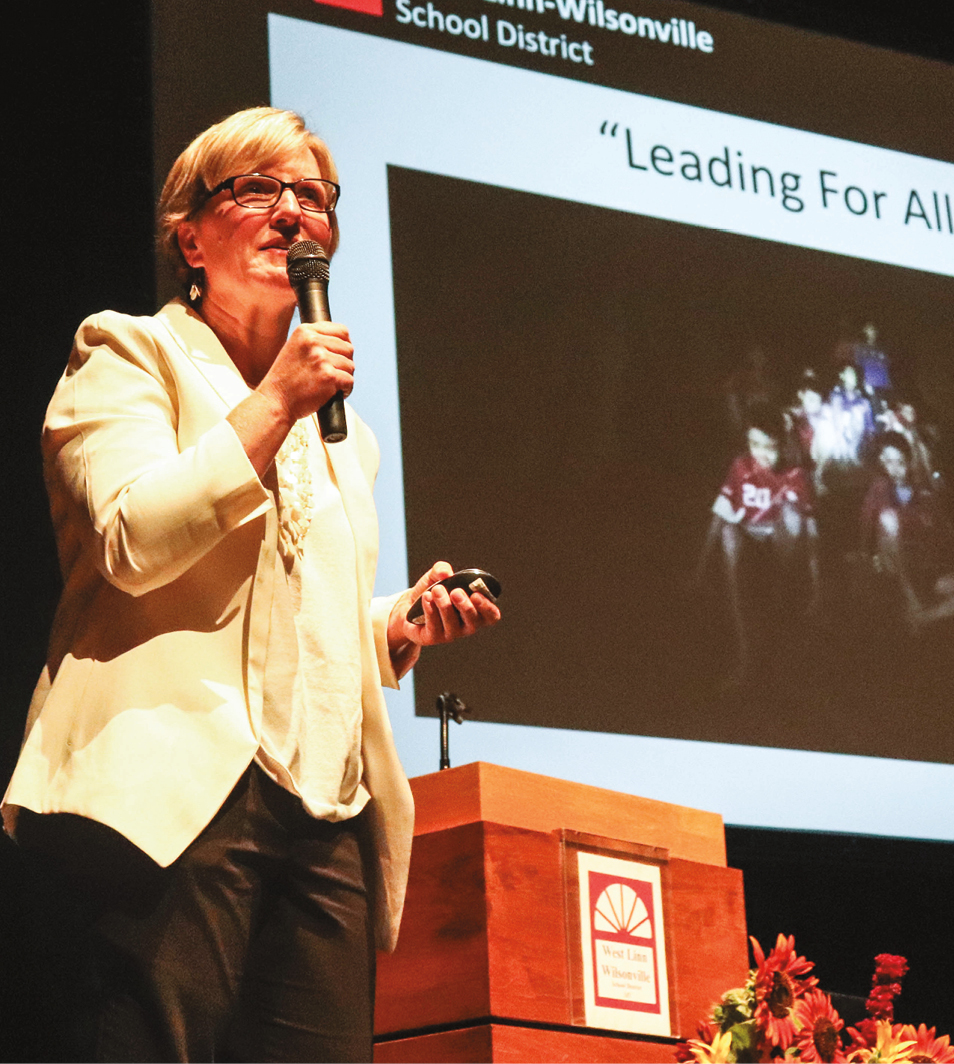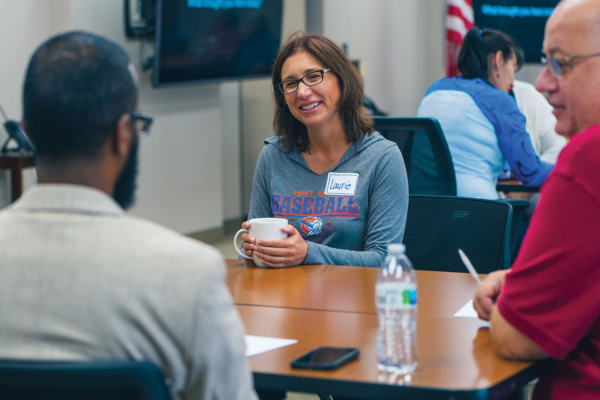What Moves the Dial on Inclusion? Our Mindsets and Beliefs
June 01, 2024
Change comes from sharing the research, telling the stories and listening to our students’ voices
I had my moment 12 years ago, sitting across from a parent who was absolutely heartbroken. This family held deep hopes for their daughter with Down syndrome to be fully included in the neighborhood school. It fell to me, as the school district’s director of student services at the time, to sit with the family in the aftermath of the individualized education program meeting where we had determined the daughter would be bused to another school to attend a specialized classroom.
This was by no means the first time I had had this conversation with a family and had seen their heartbreak as educators shared why we believed this was the best placement for some children. But for me in that moment, somehow I heard that mom’s questions in new ways:
Why can’t we bring the expertise to her daughter rather than busing her to a different school? When we say we value diversity, why would we remove students from the general education classroom? Aren’t there ways that we can design individualized instruction to meet her needs alongside her peers? Doesn’t she have the right to belong at her school?
I had been reading the educational research showing that students with intellectual and developmental disabilities benefit from inclusive learning communities. In this moment, with this grieving mom, my mindset shifted to align with the research.
This set me and our entire district on a path toward a radical model of inclusion. Twelve years later, our district’s stake is firmly in the ground for inclusion, with every student attending their neighborhood school and a daily commitment to developing a sense of belonging and academic success for every student. It is messy, imperfect work, as all education is. Yet we know it is the right work.
This Content is Exclusive to Members
AASA Member? Login to Access the Full Resource
Not a Member? Join Now | Learn More About Membership
Changing Minds on Inclusion with Help of a Leadership Collaborative
By Kathy E. Ludwig

Becoming an inclusive school district requires transformational change, and that change does not happen without clear leadership. Superintendents are key movers in this work. Yet as a superintendent, I have few colleagues I can turn to as thought partners when making leadership decisions that involve nested programmatic systems in the school district.
The need for that type of collegial consultation was apparent when we started to get serious in our school district about including our students with intellectual and developmental disabilities in classrooms with their same-age peers.
A major move of this sort meant working with various stakeholders — school board members, labor associations, parents and students, among others — on changing their beliefs and mindsets. This significant responsibility clarified the need to work openly with my peers around these opportunities and challenges.
Practical Supports
Fellow superintendents in Oregon had the same desire. We started the Inclusive Schools Leadership Collaborative in 2022 as a network and support system for superintendents in Oregon who are committed to moving the work of inclusive schooling across their districts. Starting with 10 districts, we now have 24 superintendents participating, representing districts of different sizes and demographics.
The collaborative offers three types of professional supports to superintendents:
Virtual meetings for superintendents only;
Learning walks for school district teams to observe inclusive schooling in action; and
Guest speakers (national or regional) to grow expertise.
The bimonthly meetings are a forum for district superintendents to have complex and often confidential discussions. We share with one another real-time information, the challenges of full inclusion as well as the highlights of our progress.
The learning walks serve as an opportunity for a superintendent to bring members of the district team to another district to see inclusive practices as they happen. It is so powerful to actually get into classrooms together to see inclusion working effectively for all students. Classroom observations and opportunities to speak with staff help school leaders learn more about others’ efforts and gather ideas to take back to their own district.
Guest speakers provide inspiration and affirmation around why inclusion is so important, as well as practical strategies for implementation. A highlight last year was having nationally known consultant Paula Kluth join us for an in-person meeting, centering all of us in the why of inclusion while sharing key frameworks for how each of us can assess progress toward inclusion in our districts.
All of these opportunities have been helpful to my thinking and decision making, enabling me to proudly declare that all 16 schools in our K-12 district are fully inclusive.
Next Steps
The Inclusive Schools Leadership Collaborative continues to grow in numbers and in the depth of the work. Superintendents committed to equity in all ways now are supported in working together on behalf of students with disabilities and special education.
Our next step is exploring a partnership with a regional nonprofit organization committed to advancing equity in education. This partnership would enable our collaborative to conduct research on inclusive school outcomes, build organizational capacity and provide more professional development.
When leading the hard and important work of educational change, working collaboratively is key. The Inclusive School Leadership Collaborative is an important way for superintendents to support each other in transforming schools to work for all students.
Kathy Ludwig is superintendent of West Linn-Wilsonville School District in in Tualatin, Ore.
Advertisement
Advertisement
Advertisement
Advertisement


